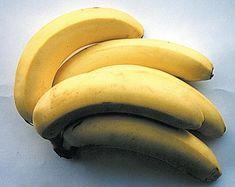
Fears of a banana price war among the major multiples resurfaced this week as Tesco and Sainsbury’s lowered prices in their value lines in response to Asda, while banana supply on the wholesale markets was the shortest it has been for nearly four years.
Tesco lowered the price on its Value range by 1p a kilo to 64p on Friday in direct response to Asda. “This is our normal policy to monitor prices on a range of 10,000 products and aim to be cheaper,” said a spokesman for Tesco.
He criticised Asda’s approach. “They are making a big deal out of using more of the producers’ crop putting smaller bananas in the Smartprice range, but the fact is we have been doing this for a long time with lower spec bananas and this price reduction has been absorbed by us, not suppliers.”
Sainsbury’s lowered its price on its Basics range to 66p.
In response, Asda fruit buyer Lee Harper said:
“If we were launching a banana at half the price of our competitors and starting a price war, then that would be lunacy, but that is not what we’re doing.”
He defended the Asda decision, saying it would encourage and tempt people on a budget, who might normally consider the fruit to be too expensive.
The Tesco spokesman denied any claims of banana-warmongering. “We are not engaged in any price war and we are not making a concerted focus on bananas as we price-match across a range of products.”
Despite supermarket assertions, the price-lowering exercise, first reported in last week’s Journal, on one of their biggest volume lines, was enough to interest national media this week with The Sun and a number of radio stations picking up on it.
But the industry is highly critical of the move. This time of year there is often a natural dip in production with some Caribbean sources not back on production yet and this is exacerbated this year by flood damage in key Central American sources such as Costa Rica and Panama.
There have also been heavy rains in the Dominican Republic and West Africa has had some difficulties in production too. With an industry shortage of fruit all round, the timing of such price promotion is called into question. Especially given demand is up slightly, probably as a result of a new-year dieting and a healthy-eating surge among many consumers.
“Price cuts only come out of one person’s pocket and that is the suppliers,” said one leading wholesaler. “It begs the question what is the true value of an article? Bananas are the shortest they’ve been for years and then you turn the corner and someone is giving them away. Where’s the realism?”
“I just don’t know what the supermarkets are trying to achieve with this,” one industry observer said. “People don’t really know what the true price of bananas is. This is devastating for producers.”
Meanwhile, the industry globally is gearing up for changes in the EU banana regime. A high-level delegation was due to meet in Quito Wednesday for a banana summit to try and work out a common position in the face of EU proposals for a e230 a tonne entry tariff for their fruit. Presidents and vice-presidents of Ecuador, Costa Rica, Colombia and Guatemala, Honduras and Panama were due to attend.
Jamaica made the most positive comment of any of the producer countries this week when agriculture minister Roger Clarke said his country could live with a common import tariff of e230, although he would prefer a tariff of e275-300.



